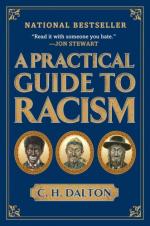|
This section contains 1,416 words (approx. 5 pages at 300 words per page) |

|
Racist Positivism in Latin America
Summary: Liberal racisr policies and Indians as a degraded race in post-colonial Latin America
The mutability of the postcolonial relationship between Indians and the republics becomes most apparent after 1850. The ideals of liberty and equality went astray in the late nineteenth century being destabilized by an upswing of another form political policy, liberalism. This liberalism was interwoven with racism and sexism, and colored by positivist interpretations of science, society and knowledge that were becoming common currency in Western Europe.
In order to understand the reaction to liberal policies of native populations in the late nineteenth and early twentieth century, it is important to focus on the scientific method that was applied to social phenomenon at the time. These new urban elites embraced the scientific techniques that were developed to apply to social interaction. New diagnostic techniques allowed reformers to asses the capacity of Indians to improve themselves and their race (Larson p.64).
The formation of positivism is central to understanding how the...
|
This section contains 1,416 words (approx. 5 pages at 300 words per page) |

|


